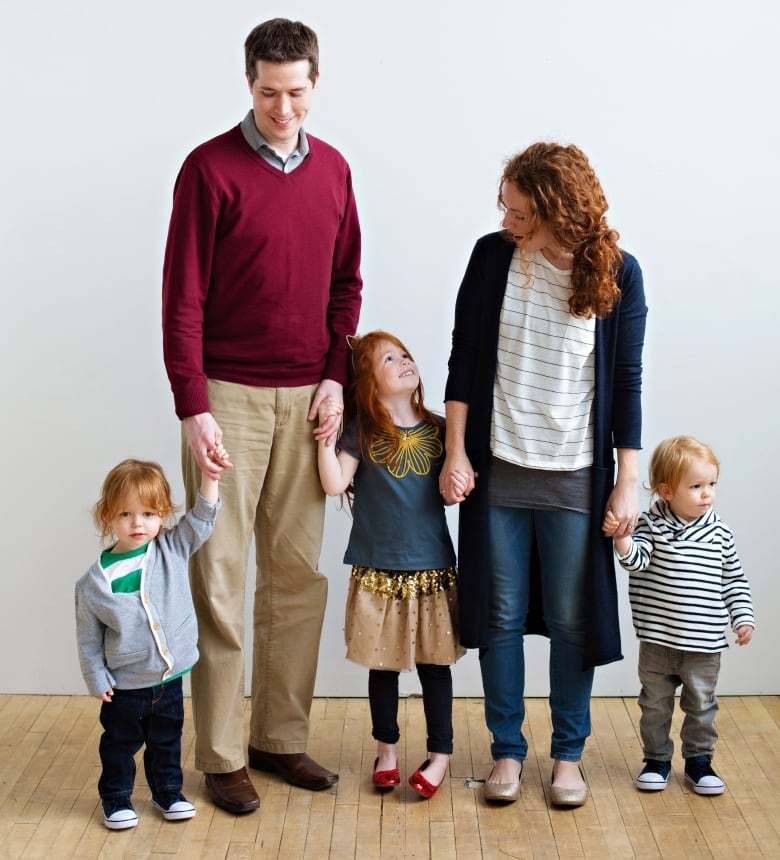Health
How Counselling Can Help with Anxiety

|
|
What is Anxiety?
Anxiety is a normal emotion that everyone experiences at some point in their life. It is a feeling of worry, nervousness, or unease about something that is uncertain or unknown. Anxiety is a normal response to stress or a challenging situation, and it can help us prepare for action or keep us safe. However, when anxiety becomes a daily occurrence and you are unable to recall the last time you felt at ease, it may negatively impact your mental health.
Anxiety Counselling can be beneficial in helping you to identify the root cause of your anxiety, better understand these feelings, and develop strategies to manage them. A counselling service like lotus therapy can provide you with the tools you need to effectively cope with anxiety.
What Causes Anxiety?
Anxiety is a normal response to a perceived threat, triggered by our body’s “fight or flight” mechanism. When we feel threatened, our body releases hormones like adrenaline to increase alertness and prepare us to respond to the perceived danger. However, in cases of anxiety, this normal response does not occur and we continue to perceive fearful situations as dangerous. As a result, people with severe anxiety may feel like there is a constant threat, even when there is none. They may try to solve the problem, but their efforts can actually increase their anxiety. Different people may react differently to the same situation, with some experiencing anxiety while others remain unaffected.
Top of Form
Bottom of Form
What Does Anxiety Feel Like?
When you feel anxious, your body activates its fight or flight response and goes on high alert, looking for potential danger. As a result, anxiety can cause a range of symptoms that vary from person to person. Some common symptoms of anxiety include nervousness, restlessness, or tension; feelings of danger, panic, or dread; rapid heart rate; rapid breathing or hyperventilation; increased or heavy sweating; trembling or muscle twitching; weakness and lethargy; difficulty focusing or thinking clearly about anything other than the source of anxiety; insomnia; digestive or gastrointestinal problems, such as gas, constipation, or diarrhea; a strong desire to avoid triggers of anxiety.
In addition to these physical symptoms, anxiety can also manifest as mental or emotional symptoms. These may include obsessions with certain ideas, which may be a sign of obsessive-compulsive disorder (OCD); repeating certain behaviours over and over again.
How Can Anxiety Counselling Help?
Anxiety counselling can help you uncover the underlying causes of your anxieties and fears, learn how to relax, view situations in a less frightening way, and develop better coping and problem-solving skills. It can give you the tools you need to overcome anxiety and teach you how to use them.
A counsellor can support you by exploring your feelings and understanding the reasons behind them. They can help you find strategies to overcome your anxiety that work for you. Counselling sessions may involve examining what is causing your fears and any underlying issues or triggers that contribute to feelings of anxiety.
Anxiety Counselling can also help with identifying unhelpful thinking patterns and work with you to slow down the physical response that leads to anxiety. Through counselling, you can discover which techniques work best for you, such as breathing or mindfulness, to help redirect your focus away from the anxiety response.
Types of Treatment for Anxiety:
The treatment for anxiety disorders varies depending on the specific symptoms and diagnosis. For example, someone with obsessive-compulsive disorder (OCD) may require a different approach than someone experiencing anxiety attacks. The duration of therapy also depends on the type and severity of the anxiety disorder. Research suggests that significant improvement can often be achieved within 8 to 10 therapy sessions, even for severe anxiety disorders. Many anxiety therapies are relatively short-term, designed to help patients develop the skills and strategies they need to effectively manage their anxiety and improve their quality of life
There are various types of therapy that can be used to treat anxiety, with the leading approaches being cognitive behavioural therapy (CBT) and exposure therapy.
Cognitive-behavioral therapy (CBT) can help individuals understand and change the negative thought patterns that contribute to their anxiety symptoms. By learning to identify and challenge these thoughts, patients can reduce the intensity and frequency of their anxiety symptoms.
The behavioural component of CBT involves exposing patients to activities and situations that trigger their anxiety, such as public speaking or being in an enclosed space, in a controlled and gradual manner. This helps clients learn that their feared outcomes are unlikely, and develop coping skills to manage their anxiety. Through this process, patients can learn to cope with anxiety-provoking situations and develop healthy coping strategies. Anxiety counselling can be conducted individually or in a group of people with similar anxiety problems. The ultimate goal is to reduce anxiety levels, calm the mind, and overcome fears.
If you are experiencing panic attacks, obsessive thoughts, constant worries, or a disabling phobia, it is important to know that you do not have to live with anxiety and fear. With the right support, you can find relief.
Health
Peel Region has major childhood vaccination backlog – CBC.ca


Peel Region has a massive childhood vaccination backlog, with more than half of children missing at least one mandated vaccine dose.
That’s the warning from Peel’s acting medical officer of health, who says the lack of school immunizations is spelling trouble for communicable diseases.
“Without significant dedicated resources, we estimate it will take seven years to complete screening catch up and achieve pre-pandemic coverage rates,” said Dr. Katherine Bingham in a presentation to Peel council on April 11.
She says low immunization coverage among students significantly increases the risk for the re-emergence of vaccine-preventable diseases such as measles.
Unless children have a valid exception, the following vaccines are mandatory for Ontario school children: diphtheria, tetanus, polio, measles, mumps, rubella, meningitis, whooping cough and chicken pox. Several other vaccines are strongly recommended by public health units and doctors.
Advocates, doctors and Peel public health are advocating for more attention to the issue, more money from the province for public health and the formation of an action plan to quickly address the currently low vaccination rates.
Peel stacks lower than the provincial average on a number of vaccinations. For example, just over 37 per cent of seven-year-olds had been vaccinated against measles compared to more than 52 per cent province-wide as of August 31, 2022.
Peel Public Health says many children missed vaccinations they would have received at school or a doctor’s offices. Reporting of vaccines and enforcement also fell behind in the pandemic. To tackle the backlog more quickly, Peel Public Health opened public clinics for mandatory vaccines as of April 1 of this year.
‘We never thought it would be us’: mother
Jill Promoli, a Mississauga mother, lost her son, Jude, to a school flu outbreak eight years ago even though he was vaccinated. She’s now an illness prevention advocate championing immunizations and said the low vaccination rates in Peel children are “very concerning.”
“We never thought it would be us, but it is going to be someone,” said Promoli, who’s also a Peel District School Board Trustee, but did not speak to CBC Toronto in that capacity.
“The reason that we do vaccinate against these diseases is not because they’re inconvenient or uncomfortable, but it’s because people do die from them,” she said.
Promoli says she’s also concerned about children who are vaccinated being exposed, given vaccines do not provide complete immunity.
Pediatric and infectious disease specialist, Dr. Anna Banerji, called the proportion of Peel students missing a mandated dose “very high.”
“It needs to be addressed,” she said.
She says part of the problem in the region is access, including to family doctors, but the region also has a diverse population, which can mean additional challenges.
“I think that language and cultural support and trying to get these kids vaccinated will be very important,” she said.
Banerji also pointed to vaccine hesitancy being higher for some coming out of the pandemic.
She says seven years is far too long to have school-aged children not protected against such concerning diseases.
Needs will only grow, says Caledon mayor
The public health unit says they have less money than several nearby health units to try and tackle the issue, receiving one of the lowest provincial per capita funding rates in the province.
For cost-shared programs, in Peel, public health was funded by the province at approximately $34 per capita in 2022, while Toronto and Hamilton each received $49 per capita, according to the health authority’s report.
Caledon Mayor Annette Groves says the funding needs to change now to address problems that will continue to climb for Peel Public Health.
“Peel is a growing region and there will be greater need for funding as our resident population increases,” she said in a statement.
Province says funding has been increasing
Asked why Peel Public Health gets fewer dollars per capita, Ministry of Health spokesperson Hannah Jensen didn’t dispute Toronto and Hamilton received more funding per capita.
“Since 2018, our government has increased our investment into Peel Public Health by nearly 20 per cent,” she said in a statement.
Jensen said that’s in addition to the $100 million the provincial government invested into public health units across the province to provide support throughout the COVID-19 pandemic.
The government has restored a funding model where the province pays 75 percent of cost sharing for public health units and municipalities including Peel pay 25 percent, she said, noting the province had been paying 70 per cent for some time, so this represented an increase.
The province also increased base funding by one per cent per year, over the next three years, starting this year for public health units and municipalities including Peel, she added.
Asked why Peel would still receive a lower per capita rate that some of its neighbours, the province did not respond directly.
She says the government is working closely with its partners to get children caught up on vaccines.


Promoli says the per capita discrepancy in funding between regions is “shocking” and diverse populations need more, not less.
“It’s always important to try to meet people where they are,” she said. “To hear those questions, to hear the reasons why people are hesitant or even refusing and to try to understand…and then find the best ways to help people make decisions that will best protect their families.”
Peel Public Health says it plans to return to council soon with more details about the challenges and its plans to address them.
Health
It's possible to rely on plant proteins without sacrificing training gains, new studies say – The Globe and Mail


At the 1936 Olympics in Berlin, a scientist named Paul Schenk surveyed the eating habits of top athletes from around the world. The Canadians reported plowing through more than 800 grams of meat per day on average; the Americans were downing more than two litres of milk daily.
While there have been plenty of changes in sports nutrition since then, the belief that meat and dairy are the best fuel for building muscle persists. These days, though, a growing number of athletes are interested in reducing or eliminating their reliance on animal proteins, for environmental, ethical or health reasons. A pair of new studies bolsters the case that it’s possible to rely on plant proteins without sacrificing training gains, as long as you pick your proteins carefully.
The standard objection to plant proteins is that they don’t have the right mix of essential amino acids needed to assemble new muscle fibres. Unlike animal proteins, most plant proteins are missing or low in at least one essential amino acid.
In particular, there’s one specific amino acid, leucine, that seems to play a special role in triggering the synthesis of new muscle. It’s particularly abundant in whey, one of the two proteins (along with casein) found in milk. That’s why whey protein is the powdered beverage of choice in gyms around the world, backed by decades of convincing research, which was often funded by the dairy industry.
But one of the reasons whey looks so good may be that we haven’t fully explored the alternatives. A 2018 study by Luc van Loon of the University of Maastricht in the Netherlands, for example, tested nine vegetable proteins including wheat, hemp, soy, brown rice, pea and corn. To their surprise, they found that corn protein contains 13.5 per cent leucine – even more than whey.
Based on that insight, van Loon decided to pit corn against milk in a direct test of muscle protein synthesis. Volunteers consumed 30 grams of one of the proteins; a series of blood tests and muscle biopsies were collected over the next five hours to determine how much of the ingested protein was being turned into new muscle fibres. The results, which appeared in the journal Amino Acids, were straightforward: Despite all the hype about whey, there was no discernible difference between them.
A second study, this one published in Medicine & Science in Sports & Exercise by a team led by Benjamin Wall of the University of Exeter in Britain, had similar findings. Instead of corn, it used a mix of 40 per cent pea, 40 per cent brown rice and 20 per cent canola proteins. Since different plants have different amino acids profiles, mixing complementary proteins has long been suggested as a way overcoming the deficiencies of any single plant protein. Sure enough, the protein blend triggered just as much new muscle synthesis as whey.
On the surface, the message from these studies is straightforward: Plant proteins are – or at least can be – as effective as even the best animal proteins for supporting muscle growth. There are a few caveats to consider, though. One is that the studies used isolated protein powders rather than whole foods. You would need nearly nine cobs of corn to get the 30 grams of protein used in van Loon’s study, compared to just three-and-a-half cups of milk.
Another is that plants are generally harder to digest, meaning that not all the amino acids will be usable. That may not be a problem for healthy young adults consuming 30 grams of protein at once, which is enough to trigger a near-maximal muscle response. But for older people, who tend to have blunted muscle-building responses to protein, or in situations where you’re getting a smaller dose of protein, the details of protein quality may become more important.
Of course, the effectiveness of plant proteins won’t be news to notable plant-based athletes such as ultrarunner Scott Jurek or basketball star Chris Paul – but it’s encouraging to see the science finally begin to catch up.
Alex Hutchinson is the author of Endure: Mind, Body, and the Curiously Elastic Limits of Human Performance. Follow him on Threads @sweat_science.
Health
See how chicken farmers are trying to stop the spread of bird flu – Fox 46 Charlotte


CLOVER, S.C. (QUEEN CITY NEWS) — Poultry farmers across the Carolinas aren’t taking any chances. Many are turning to strict protocols as another wave of bird flu continues to threaten the chicken population across the country.
Since 2022, it is estimated more than 90 million birds have either died from the virus or were killed to prevent further spread in the U.S.
“We try to make them the happiest as possible. We always say a happy chicken is a tasty chicken,” owner of Eden Farms Adam Shumate said.
With their happiness in mid, Shumate also wants to keep his chickens alive and healthy. On his farm in Clover, he has implemented protocols to minimize a potential bird flu outbreak.
“We want to be prepared,” he said. “We feel like the things that we can do to prevent it first is the best case because we don’t want to start from scratch with a whole new flock.”
Because bird flu is commonly spread through bird droppings, Shumate is limiting the number of people coming into contact with his flocks. He says this would minimize the chances of someone walking onto the property with bird droppings on the bottoms of their shoes.
On top of monitoring the chickens closely, Shumate and his staff are constantly cleaning their equipment, including what they wear on their feet.
“We have specific shoes that are just for working with the flock and for when we are taking care of them,” Shumate said.
Other farmers, like Holly Burrell, haven’t let a visitor step foot near her hens in Gastonia for more than two years.
No visitors or outside cars are welcomed, and her chickens are separated in what she calls “tent cities.”
“We don’t want to do that because we want them to live their best life,” Burrell said in a 2022 interview with Queen City News.
Recently, health officials have detected bird flu in other animals like seals, squirrels and dolphins.
Earlier this month, bird flu was detected in one of the state’s dairy cow herds. While concerning, state health officials say the overall risk to the general public remains low.
“I’ve not heard of any cases, zero cases of people being affected by this virus associated with food consumption, milk consumption with egg consumption… any of these products we’re getting from farm animals is not really been associated with any human risk at this point,” said Dr. Michael Martin, director of the Veterinary Division at the N.C. Department of Agriculture and Consumer Services.
As of March 28, at least 80 birds in North Carolina were detected with the virus. Back in York County, Shumate says it all starts with the individual farms.
“When it comes to wildlife and things that that, there is only so much that you can do is be observant,” Shumate said. “Keep a healthy flock that way they can find off the infections that may come about.”
-
Business14 hours ago
Honda to build electric vehicles and battery plant in Ontario, sources say – Global News
-



 Science15 hours ago
Science15 hours agoWill We Know if TRAPPIST-1e has Life? – Universe Today
-
Investment18 hours ago
Down 80%, Is Carnival Stock a Once-in-a-Generation Investment Opportunity?
-



 Health15 hours ago
Health15 hours agoSimcoe-Muskoka health unit urges residents to get immunized
-



 Health12 hours ago
Health12 hours agoSee how chicken farmers are trying to stop the spread of bird flu – Fox 46 Charlotte
-
News20 hours ago
Honda expected to announce multi-billion dollar deal to assemble EVs in Ontario
-



 Science20 hours ago
Science20 hours agoWatch The World’s First Flying Canoe Take Off
-



 Investment13 hours ago
Investment13 hours agoOwn a cottage or investment property? Here's how to navigate the new capital gains tax changes – The Globe and Mail










